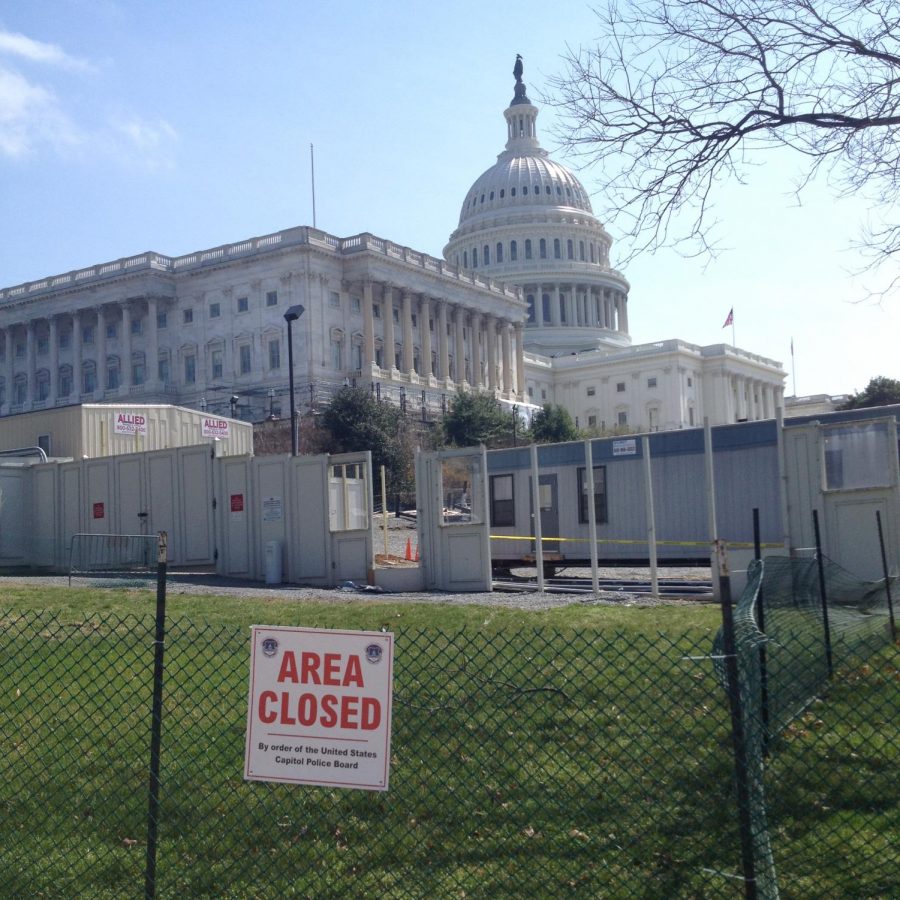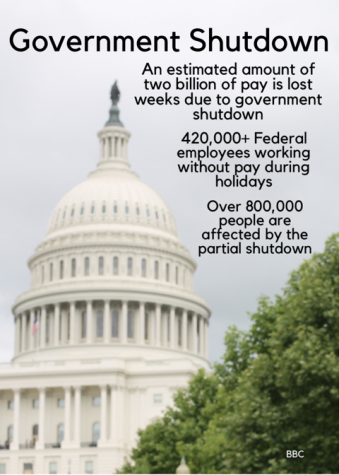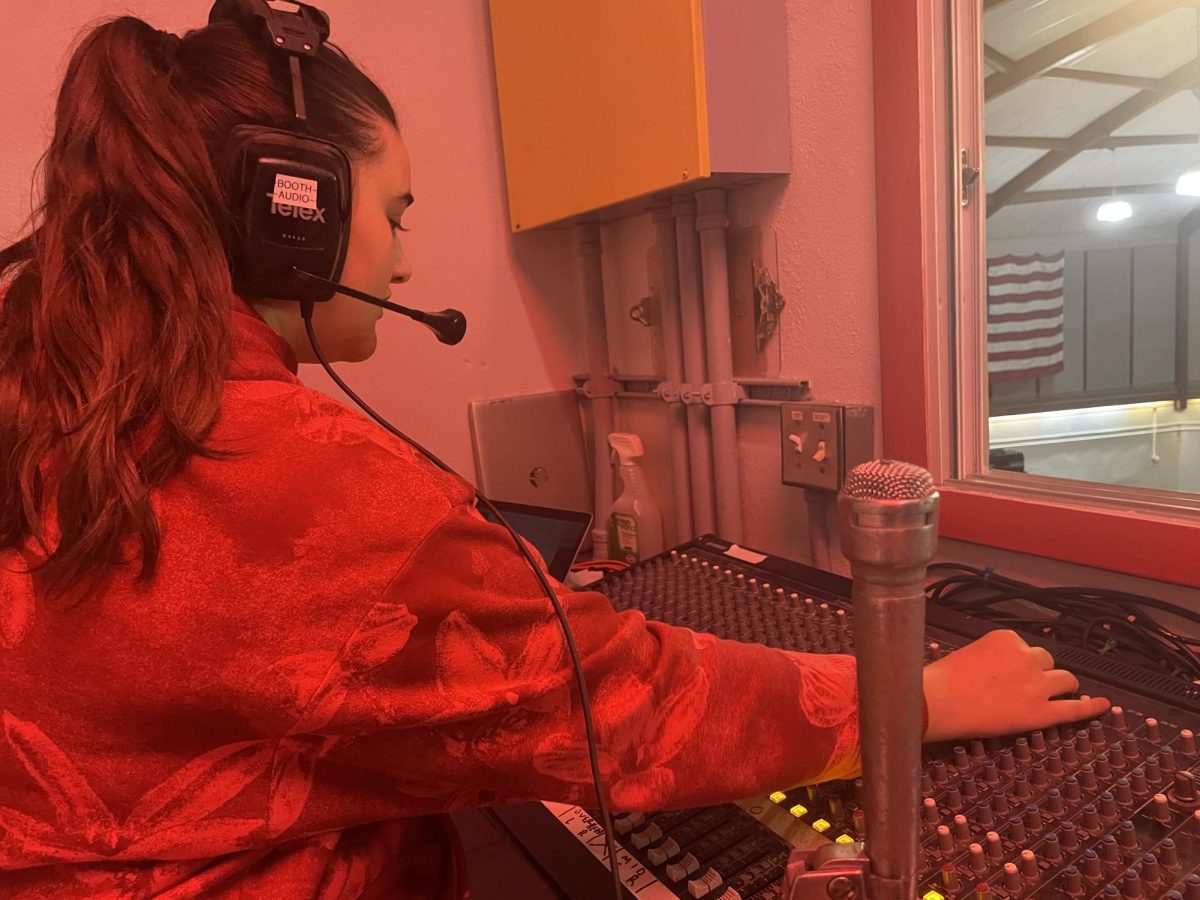How the Partial Government Shutdown is Affecting Low Wage Workers
As the government shutdown stretches on, many of the departments are stopping operations or even temporarily closing.
Jan 10, 2019
After almost three weeks of a partial government shutdown, low-wage government workers have had to handle their lives without a steady income. The length of this shutdown has made it difficult for families with one sole provider to pay for food, bills or even rent. The numbers are not completely clear, but around 800,000 government workers have gone unpaid during the shutdown. The situation is a result of a standstill between President Trump and congressional Democrats after Trump demanded that almost six billion dollars of taxpayer money be allocated to pay for the border wall. Most government workers are affected, but some of the hardest hit have been seen among Transportation Security Administration (TSA) workers, who only make a salary of about 37,000 dollars a year.
As time goes by, people are quitting their jobs and finding new jobs that allow them to sustain their daily lives. This is shown especially by the American Federation of Government Employees, which is currently representing around 44,000 Transportation Security Administration (TSA) workers in a formal complaint against the shutdown. They believe that having the security workers work without pay is illegal and have taken serious action to end the mistreatment. Some of the other bureaus affected are the Federal Bureau of Investigation (FBI), the Drug Enforcement Administration (DEA), the Internal Revenue Service (IRS) and the Federal Housing Agency (FHA).
“I think that government shutdowns are necessary for a way. It gives the government an incentive to govern and make smart decisions. However, I do not agree with the border wall and I think that the money that Republicans want to spend on the border wall can be much more effective somewhere else,” sophomore Isabella Rodriguez said.
The government shutdown also affects workers in another way: previously scheduled leave for affected employees has been canceled as a result of the inaction. These employees were not able to take the vacation they might have planned months in advance while still being paid.
“I believe the government shutdown should not continue because the President is using it as a pawn to get his way. There is absolutely no reason to not approve funding to have our government run when the American public is not the reason that it’s shut down. The American public is paying for a shutdown because he’s too stubborn to be realistic,” sophomore Samantha Gazda said.
Not only does the shutdown affect people working for the government, but some regular citizens may feel the pressure as well. Loan applicants are experiencing major setbacks because of the lack of funding behind the Federal Housing Agency. Tax refunds, another source of money, are also not being processed by the IRS. Employees of contractors that work for the federal government may also be put at risk financially. Most importantly, if this continues through February, the government may not be able to provide food stamps for those who depend on them. Recently, the President declared that they would be able to pay for food stamps for February, but there is no guarantee.
As of Jan. 10, the end of the partial government shutdown is nowhere in sight. If this progresses, civilians and government employees alike will feel the effects more and more as additional government programs shut down.















